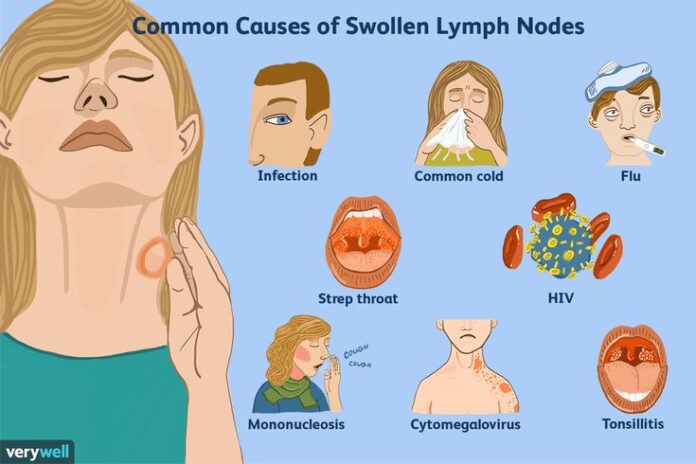Can Vaping Cause Lymph Node Cancer: E-cigarettes and cancer
There have been numerous false headlines based on recent research, some of which say that vaping can cause cancer. That is untrue. No proof vaping increases the risk of cancer.
The popularity of vaping has soared, capturing the interest of individuals looking for an alternative to traditional smoking. However, with this surge comes growing concern about the potential health risks associated with vaping. One alarming question has emerged: can vaping cause lymph node cancer? In this article, we delve into the intricacies of this pressing issue, exploring the connection between vaping and lymphatic system health.
As vaping has grown in popularity over recent years, questions about its health impacts have become increasingly pertinent. While many turn to e-cigarettes hoping they are a safer alternative to traditional smoking, emerging research suggests that vaping might not be without its risks. This detailed article explores whether vaping can cause cancer, focusing on various cancers including lymph node cancer and examining the broad spectrum of vaping health effects. Read more: Can Prolia Cause Cancer
Understanding Vaping and Its Components
Vaping involves inhaling vapor produced by an e-cigarette or vape pen. This vapor comes from a liquid commonly referred to as e-juice or vape juice. These liquids typically contain several key ingredients, including:
- Nicotine: An addictive substance found in tobacco.
- Propylene Glycol (PG): An additive used in many products, including antifreeze.
- Vegetable Glycerin (VG): A thicker substance used to create vapor.
- Flavorings: Artificially added to enhance taste.
While these components are often considered safer than those found in traditional cigarettes, they are not without their risks. Also Read This Article: Bowel Cancer Stomach Noises
The Science Behind Vaping and Cancer Risk

E-cigarettes and Cancer Research
Research into the cancer risk from vaping is still in its early stages. However, several studies have pointed to potential hazards. For example, a 2018 study indicated that some e-liquids contain chemicals that can be harmful when inhaled. Among these are:
- Formaldehyde: Known for its carcinogenic properties.
- Acrolein: Commonly used as an herbicide, linked to lung damage.
- Diacetyl: Associated with popcorn lung, a serious respiratory condition.
Vaping Carcinogens and Their Effects
The term vaping carcinogens refers to harmful substances in vape juices that may increase cancer risk. Studies suggest that even though e-cigarettes emit fewer toxins than traditional cigarettes, they still release harmful chemicals. Research has shown that:
- Acrolein: Found in some e-liquids, has been linked to DNA damage and increased cancer risk.
- Heavy Metals: Like lead and cadmium, which can leach from vape device coils.
Vaping and Lymphatic Health
Lymphatic Cancer from Vaping
The connection between vaping and lymphatic cancer is a topic of growing concern. While direct evidence linking e-cigarettes to lymph node cancer is limited, the presence of harmful chemicals in vape juices raises potential risks.
Recent studies have investigated how vaping could impact the lymphatic system. For instance, vaping and lymph node swelling might occur due to the inflammatory response triggered by inhaled chemicals.
Vaping and Immune System Impact
The immune system’s role in fighting cancer is crucial. Vaping and immune system interactions are complex and not fully understood, but research suggests that vaping could impair immune function, potentially affecting the body’s ability to fight cancer.
Health Risks Associated with Vaping

Vaping Health Concerns and Disease Links
The vaping health effects extend beyond cancer. Research has identified several health conditions associated with vaping, including:
- Chronic Obstructive Pulmonary Disease (COPD): A group of diseases that block airflow and make breathing difficult.
- Bronchiolitis Obliterans: Also known as popcorn lung, caused by inhaling diacetyl.
- Acute Lung Injury: A serious condition resulting from severe inflammation and damage to lung tissues.
E-cigarettes Health Impact on Long-term Users
Long-term e-cigarettes health impact remains a significant concern. Although vaping may be less harmful than smoking, it still poses risks. Vaping cancer studies suggest that prolonged exposure to vape smoke could lead to cancer and other health issues, although conclusive evidence is still developing.
Comparing Vaping and Smoking
Vaping and Smoking Health Risks
Comparing vaping and smoking lung cancer risks is crucial. Traditional cigarettes are well-documented to cause cancer due to tar and numerous carcinogens. In contrast, e-cigarettes do not produce tar but still contain harmful chemicals. The overall risk from vaping is considered lower than smoking but not negligible.
Popcorn Lung and Vaping
Popcorn lung or bronchiolitis obliterans is a condition linked to inhaling diacetyl, a flavoring agent used in some e-juices. While no cases directly link vaping to popcorn lung yet, the presence of diacetyl in some vape juices raises concerns about potential long-term health effects.
Key Takeaways and Recommendations
- Understanding Risks: Vaping and cancer development research is ongoing, but existing studies suggest potential risks. E-cigarettes and cancer research highlight concerns about long-term health impacts.
- Informed Choices: Individuals should be aware of the potential risks of e-cigarettes and cancer and make informed choices regarding their use.
- Health Monitoring: If experiencing symptoms such as coughing, wheezing, or chest pain, it is essential to consult a healthcare professional. Vaping and lymph nodes swelling or other unusual symptoms should be evaluated by a medical expert.
- Alternatives to Vaping: For those seeking to quit smoking or vaping, alternative methods and cessation programs can offer support.
Conclusion
The debate on whether vaping can cause cancer continues as research evolves. While vaping is generally considered less harmful than smoking, it is not without risks. The presence of harmful chemicals in e-liquids and potential effects on the lymphatic system suggest that caution is warranted. As more research emerges, individuals should stay informed and consider the potential health impacts of vaping on both their overall well-being and specific conditions like lymph node cancer.
FAQs
Q. Is there conclusive evidence linking vaping to lymph node cancer?
A. The current evidence is inconclusive, with ongoing research exploring the potential links between vaping and lymphatic system health.
Q. What are some alternatives to vaping for individuals looking to quit smoking?
A. Smoking cessation programs, nicotine replacement therapies, and healthier lifestyle choices are viable alternatives.
Q. Are there specific regulations regarding vaping and its potential health risks?
A. Governments worldwide are actively working on regulations to address the evolving landscape of vaping-related health concerns.
Q. How can individuals distinguish between reliable information and misinformation about vaping?
A. Fact-checking, consulting reputable sources, and staying informed about the latest research is crucial in discerning accurate information.
Q. What can the average person do to contribute to public health awareness about vaping risks?
A. Sharing accurate information, participating in advocacy efforts, and engaging in open conversations can contribute to raising public awareness about vaping risks.








